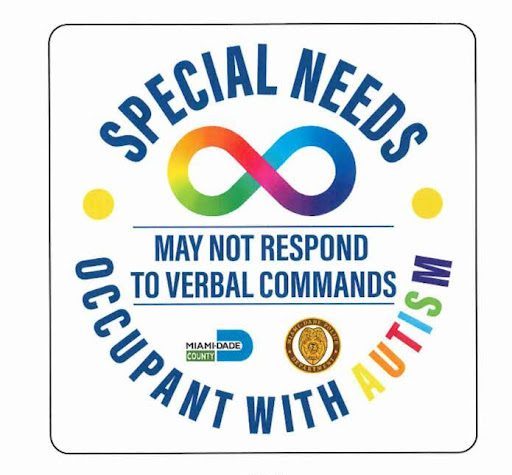|
Getting your Trinity Audio player ready...
|

My son Sebastian has always been my little boy. But as I watched him develop into a young man, my fear of how the world might react to him as an adult on the spectrum has grown along with him.
To me, Sebas is a gentle giant. But to strangers, he’s a big man with a loud voice who sometimes comes across as agitated or overly excited, which could put him at risk in facing a potential confrontation.
Many parents raising children with autism live with nightmares about the worst case scenario – what could happen if my child encountered a police officer during an altercation or crisis? Would the officer be able to recognize and handle the situation, or read my son’s stressed behavior as threatening or disrespectful?
My reaction to this fear was to train my son from the age of five to de-escalate any potential altercations: “Stop, sit, hands visible, repeat the autism disclosure, and ask them to call Mom.” In middle school, a smaller kid pushed Sebas to the ground after an argument, but he remembered to stay down, remain calm – averting a potential crisis.
Sadly, training like this is a grim necessity, especially for people who can’t express themselves verbally as well as my son can. As a School Board Member and now as a County Commissioner, I’ve dedicated over a decade to championing neurodivergent individuals, emphasizing their capabilities, and forging pathways for their success. Because I’ve been so public about this issue, I get those panicked calls from parents who have watched their children get arrested or detained under the Baker Act when a stressful situation went sideways.
One of the first things I did as a Commissioner was to pass legislation that prioritized training county staff not only to ensure access to resources but also to mitigate negative encounters that could escalate to arrests.
This extensive training initiative, conducted in partnership with the University of Miami-Nova Southeastern University Center for Autism and Related Disabilities, kicked off in 2021. To date, it has equipped over 2,100 police officers and 138 firefighters with essential skills, including crisis intervention and de-escalation techniques tailored for interactions with people on the autism spectrum.
This April, we took the next step by launching the Occupant with Autism decal program to bring our families together with Miami-Dade County Police, creating a culture of awareness and acceptance that should help reduce unnecessary tragedies during a crisis.
Families can register their loved ones and receive two free decals, to be displayed prominently on windows or doors of residences and vehicles. The visual cue will give first responders a chance to implement their training on approach, using pertinent details like verbal or non-verbal communication.
While some local police departments had similar initiatives, they were restricted to specific municipalities. Our county-wide program supplements existing efforts, ensuring uniformity and inclusivity. This move is pivotal in guaranteeing the safety of our residents on the autism spectrum and fostering positive engagements with first responders. The community has embraced this initiative, with nearly 1700 decals deployed to families in less than a month.
As a parent and an advocate, I am proud of our incredible police force that took on this mission with enthusiasm and grateful for the support of the Mayor and my colleagues on the Commission. Together, we’re making a Miami-Dade County that’s not only safer but also more inclusive and resilient.






